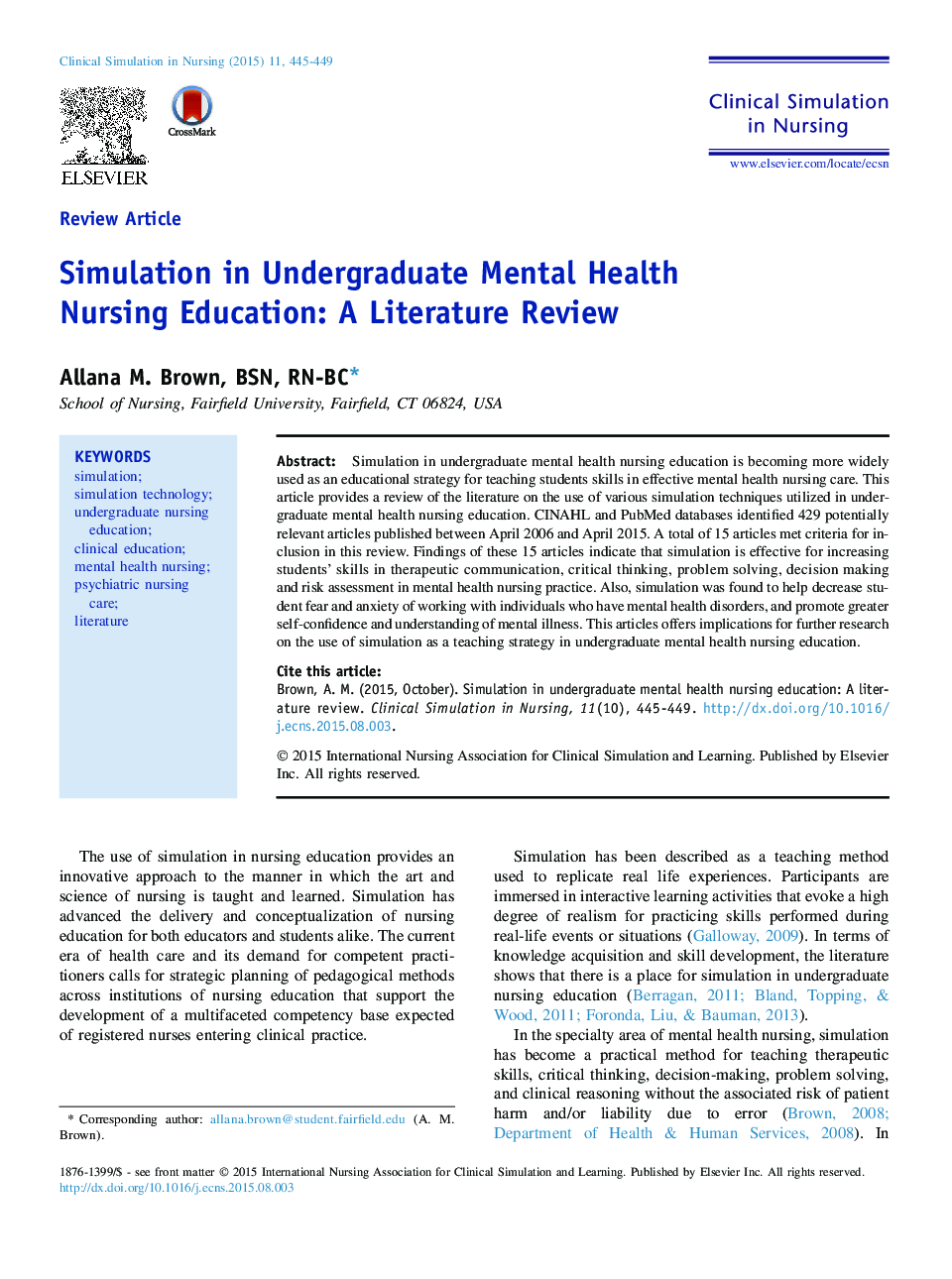| Article ID | Journal | Published Year | Pages | File Type |
|---|---|---|---|---|
| 2646937 | Clinical Simulation in Nursing | 2015 | 5 Pages |
•Simulation has become an educational strategy for teaching mental health nursing students skills in mental health assessment, therapeutic communication, critical thinking, decision-making, problem solving, and clinical reasoning.•Simulation experiences in mental health nursing education have been used to address student bias, stigma, anxiety, and fear of individuals who have mental illness.•Simulation in mental health nursing education helps to enhance empathetic care and increase students' understanding of mental illness.
Simulation in undergraduate mental health nursing education is becoming more widely used as an educational strategy for teaching students skills in effective mental health nursing care. This article provides a review of the literature on the use of various simulation techniques utilized in undergraduate mental health nursing education. CINAHL and PubMed databases identified 429 potentially relevant articles published between April 2006 and April 2015. A total of 15 articles met criteria for inclusion in this review. Findings of these 15 articles indicate that simulation is effective for increasing students' skills in therapeutic communication, critical thinking, problem solving, decision making and risk assessment in mental health nursing practice. Also, simulation was found to help decrease student fear and anxiety of working with individuals who have mental health disorders, and promote greater self-confidence and understanding of mental illness. This articles offers implications for further research on the use of simulation as a teaching strategy in undergraduate mental health nursing education.
